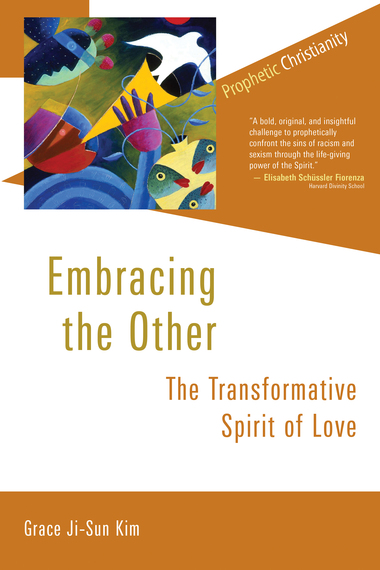Growing up in a Korean immigrant family was not easy. Our family immigrated to Canada when I was five years old. We were all faced with many difficulties, encountering pains and obstacles from our early arrival. I had to learn a new language and assimilate into an alien culture. I always felt out of place as a foreigner at school and in the larger community.
Some of my experiences were a result of an established system of racism and sexism that was rooted deep in the Anglo-American world I confronted. As a child with many shortcomings, this was nearly impenetrable. The institutionalized racism and sexism of the dominant culture seemed to oppose the outset of my immigrant history. Thinking of the notion of my own childhood is saddening; the flooding memories of utter toil, pain, and stereotyping eventually led me to be marginalized from other children and the larger society.
Just as we have grown from our small and naive stature into a more developed self, so has the issue of institutional racism and sexism. It has manifested into something big, and is so strongly integrated into our culture that they often go unnoticed. The secular society ignores their own destructive realities and therefore does little to dismantle them. But it is our Christian responsibility to work at eliminating the evils which has proven to pollute and weaken our society, community, and churches. This can be achieved by recognizing it, when and where it occurs, and then eviscerating the attitude of oppression and dismantling the patriarchy which pervades our Judeo-Christian tradition.
People of color have historically been ghettoized in the margins of society. They have been neglected, discriminated against, and stereotyped since their arrival in North America. Pushed to the mere perimeters of their community, people of color are sensitive to experiences of oppression. The wounds are raw and painful, not only from a brooding history, but the present continuation of this mistreatment. The intersection of racism and sexism deepens the wounds and compounds the oppression that sidelined women of color experience.
Paris was attacked by ISIS terrorists on November 14, 2015. It was devastating; ISIS claimed responsibility for the deaths of over 130 people. Since this event, there have been many forms of xenophobia, racism, Islamophobia and ill feelings toward Muslim minorities. Many are now afraid of Syrian refugees who are fleeing for the safety of both their family's and their own lives. Some Americans are now refusing to accept refugees into their States as they fear that they are terrorists.
Can we continue to live in fear of those who are different from "our crowd"? How can we ignore the plight of those who are being chased out of their country and seeking refuge in a foreign country? Are we following God in all this fear, blame, and neglect of others or are we neglecting God's commandment to love our neighbors?
For those of us who are pushed to the margins, how do we come to experience God?
In this broken world of misgivings, misrepresentations, and misunderstandings among the diverse human family created by God, Jesus revealed our need to explore the margins and create a pathway toward healing and hope. Jesus' family was in fact a refugee family who fled into Egypt as Herod ordered the slaughter of young children. By definition, Jesus was in fact the Other who was pushed to the margins of society. As a poor Jewish peasant teacher from Nazareth, Jesus was marginalized by the leaders in Jerusalem. He stood in solidarity with the marginalized lower classes. Throughout his Palestinian society, Jesus incarnated life, practiced kin-dom teaching, and crucifixion on a criminal's cross reveal God's transformative love working for justice, peace, and liberation.
The healing of divisions in this world happens through God's transformative Spirit of love. With restless hearts we often long to connect with God, the Other, and the community that is in touch with God's creation. Through the practice of prayer to God our longing is transformed into a Spirit of love. The Spirit is a life energy that gives us strength to love God and love for our neighbor.
As we work out and accept our differences and tensions between peoples, we understand that it is the Spirit God who can bring us together. As a step towards a loving community and intimate relationship with each other, we should take a step back and consider all possibilities of experiencing care, acceptance, and love.
Being in connection with one another is a formative power that can strengthen our very existence. All that is comes to be by virtue of connectedness. The Spirit-led life helps us to stay connected to God and the Other in deep solidarity as we engage in the work of social transformation. The Spirit is the true source of "restoring right relationships." The Spirit keeps theological interpretations of life open for the future as well as healing the dangerous memories of the past.
Spirit God energizes us for the work of healing in the world. All people are made in the image of God whereby we are called to love our neighbor just as we love ourselves. Since we are all created in the image of a God who loves us completely and eternally-no matter who we are or what we do-we are called to love all people with that same extravagant and inclusive love.
*This piece was inspired by my book, Embracing the Other: The Transformative Spirit of Love (Eerdmans 2015)

